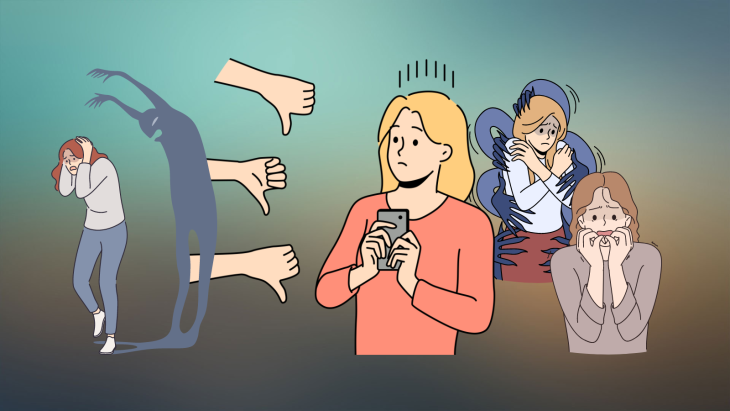Recent Posts
- I broke up with my partner, but now I am having doubts. Did I do it out of the right reasons or was I just being fearful?
- My Quick Temper Pushes People Away. What Do I Do To Manage My Anger?
- How does noise affect my mental health?
- I want to be a better problem solver. What is a step by step approach?
- Escapism. When is it healthy? When is it damaging?
Most Popular
Bad news is all around and it gives me anxiety! How do I overcome my negative feelings?

Bad news is all around and it gives me anxiety! How do I overcome my negative feelings?
Is it just me, or the news just has gotten more and more depressing?
Certainly, the tone of news has become more negative since 1945, according to a Forbes study. With the recent Covid-19 pandemic, people all around the world, stuck in their homes, were subject to reports of fatalities, economic upheavals and overall life disruptions. Looking at the news, it seemed like a terrible time to be in.
Despite this negativity, why were we still glued to news outlets? It turns out that our brains tend to fixate on the bad. It is our brain's way of warning us of danger, trying to keep us safe from harm.
Mental health struggles tend to rise and worsen in long-term exposure to negative news, but psychologists believe that developing our optimism can protect our brain from its damaging effects.
Triggering news and its effects
While it is necessary to be informed of facts and prepare for events that could possibly affect us, indiscriminate exposure to negative news can trigger us and increase our risk for harm.
- It triggers fear, sadness and anger.
- These negative feelings further increase our desire to watch or listen to more news, creating a cycle called “doom scrolling.”
- It increases stress that furthers the risk for anxiety and depression.
Developing optimism, the power to choose
- Resilience. Those who have a more optimistic view of life and events are more able to bounce back after difficult situations and they enjoy healthier physical and mental health.
- Trust. Another study showed that people who report having general trust and those who do not engage in conspiracy theories have less fear during a crisis.
- Protection from distress. Optimism also protects older adults from becoming obsessive in searching for signs and symptoms or diseases, medical diagnosis, and other treatment-related information online.
- Activities for optimism. Those who continue to develop support networks, engage in physical activity and express gratitude regularly develop more optimism.
Tips to promote more optimism and less consumption of negative news
- Engage in social media less. Our digital devices make news easy to see, and the truth is that in order to increase engagement in social media posts, companies tend to sensationalize events. Issues that some companies even promote negative news to enhance clickability and readership have been raised.
Knowing this, we can choose to limit our access to social media. Let us be selective in the things we watch by:
- Turning on the news only at specific times of the day, rather than keeping it as a background 24/7
- Being sensitive to our bodies. When we recognize signs that we are triggered by the news, we can turn it off. (Increased heart rate, rapid breathing, feeling the early signs of panic, feeling increasingly tired or irritable, etc)
- Avoid consuming the news before bed. This is especially important as our bodies need to be in a relaxed state to promote good sleep.
- Stick to news channels or news organizations that do not sensationalize and promote factual information.
- Consider disconnecting yourself from the media from time to time.
- Do other activities that promote relaxation. What lifts up your mood? Do these things instead of binge-watching the news.
- Listen to uplifting music.
- Take a shower or a bath.
- Exercise.
- Keep a spirit of gratitude. Ask yourself daily, “What is something good that happened today? Or What can I be thankful for today?” This reminds us that the world is not all negative.
- Socialize more.
Managing distress and strong emotions can get overwhelming. Therapists and mental health professionals can help you identify triggers and develop coping strategies.
Protecting your mind in the midst of all the noise around you is like protecting the peace and balance inside you. What you cultivate in your mind will flourish and flow out into your life and into others, so try to build a more optimistic and resilient thought life.







Comments